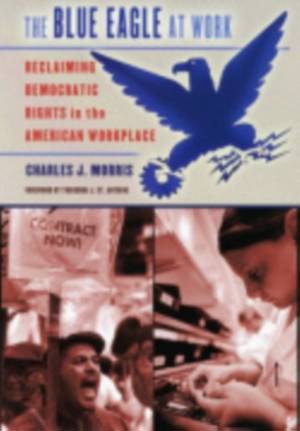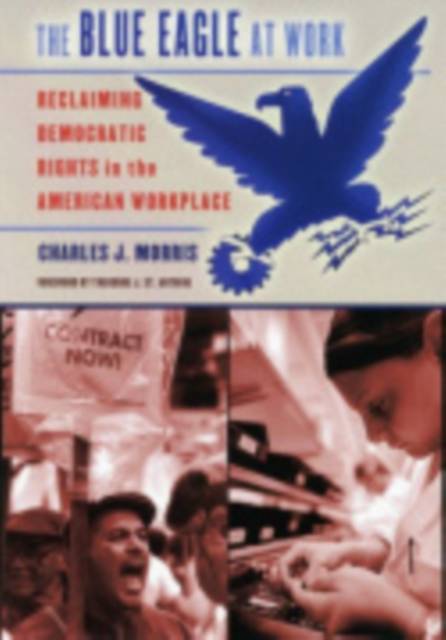
- Retrait gratuit dans votre magasin Club
- 7.000.000 titres dans notre catalogue
- Payer en toute sécurité
- Toujours un magasin près de chez vous
- Retrait gratuit dans votre magasin Club
- 7.000.0000 titres dans notre catalogue
- Payer en toute sécurité
- Toujours un magasin près de chez vous
Description
In The Blue Eagle at Work, Charles J. Morris, a renowned labor law scholar and preeminent authority on the National Labor Relations Act, uncovers a long-forgotten feature of that act that offers an exciting new approach to the revitalization of the American labor movement and the institution of collective bargaining. He convincingly demonstrates that in private-sector nonunion workplaces, the Act guarantees that employees have a viable right to engage in collective bargaining through a minority union on a members-only basis. As a result of this startling breakthrough, American labor relations may never again be the same. Morris's underlying thesis is based on a meticulous analysis of statutory and decisional law and exhaustive historical research.Morris recounts the little-known history of union organizing and bargaining through members-only minority unions that prevailed widely both before and after passage of the 1935 Wagner Act. He explains how vintage language in the statute continues to protect minority-union bargaining today and how those rights are also guaranteed under the First Amendment and by international law to which the United States is a committed party. In addition, the book supplies detailed guidelines illustrating how this rediscovered workers' right could stimulate the development of new procedures for union organizing and bargaining and how management will likely respond to such efforts.The Blue Eagle at Work, which is clear and accessible to general readers as well as specialists, is an essential tool for labor-union officials and organizers, human-resource professionals in management, attorneys practicing in the field of labor and employment law, teachers and students of labor law and industrial relations, and concerned workers and managers who desire to understand the law that governs their relationship.
Spécifications
Parties prenantes
- Auteur(s) :
- Editeur:
Contenu
- Nombre de pages :
- 304
- Langue:
- Anglais
- Collection :
Caractéristiques
- EAN:
- 9780801443176
- Date de parution :
- 15-12-04
- Format:
- Livre relié
- Format numérique:
- Genaaid
- Dimensions :
- 162 mm x 241 mm
- Poids :
- 598 g

Les avis
Nous publions uniquement les avis qui respectent les conditions requises. Consultez nos conditions pour les avis.






